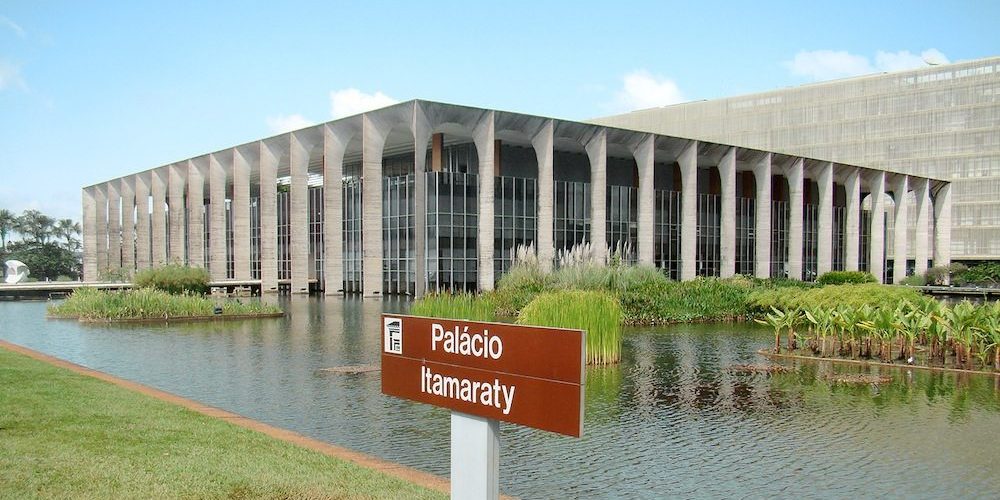In spite of the existence of the Republic’s principles on international relations being confirmed in article 4 of the Constitution, the lessons of the Baron of Rio Branco do not bind the political agents. However, in practice, acts of diplomacy submitted to constitutionality control by the Supreme Court, would transform international relations in a more bellicose environment than it could normally be.
Despite this fact, Brazil walked in history with a certain constancy, following the path of universalism in its international relations, without, as a general rule, changes as striking as they have occurred since 2019 under the presidency of Jair Bolsonaro.
It is true that during the course of history, we initially had to focus on negotiations related to the country’s territorial limits, the abolition of slavery, and immigration that were building up for the construction of the country.
We would say that the first steps were taken towards the recognition and liberation of Brazil in relation to Portugal, as well as a search for freedom in relation to British influence.
Brazil seems, with this tradition, to have become a nation a little more prudent in international relations; because it is a country rich in resources, large in territory, but poor financially and militarily.
Even at the height of the Lula government and continuing until 2010, with the consequent fascination with the fruitful China / Brazil relations, until the epilogue with diplomatic inapetence for Dilma’s position, and her harshness in the political and diplomatic treatment, the relations could even be more cloudy in the end, but not to the point of a sudden turn in international relations.
This succinct introduction, although incomplete, reflects our perception that Brazil was not given the fate of having major bumps in its international relations.
However, in 2018, President Jair Bolsonaro was elected, and along with him, Chancellor Ernesto Araújo ascends to the Ministry of Foreign Affairs.
Bolsonaro’s election was strongly marked by a campaign on social networks on the Internet, and also by the dissemination of politics aimed at ideological polarization.
It cannot be said that Jair Bolsonaro, in the campaign, hid his belief bias in a conservative, Christian, anti-globalist society, punctuated by populist-nationalist raptures, and based on an economic policy of an agrarian country.
Bolsonaro has shown himself in all his dimensions to Brazil and the world; he was elected for finding many points of adherence with the electorate, reflecting this bias in 57 million votes.
Even before the election, Jair Bolsonaro had traveled to Taiwan, in a direct message to the Chinese government; expressed its intention to move the Brazilian embassy to Jerusalem, possibly to please its neo-Pentecostal electorate, which is fixated by the old testament, and, clearly, automatically aligned itself with the Donald Trump administration, in the USA.
The fact is that Bolsonaro and his group showed little concern for the dictates of Article 4 of the Constitution, and even for all the first articles of the Charter dealing with fundamental rights.
The diplomacy of Ernesto Araújo and Bolsonaro has shown itself many times in its unconstitutional face; but, as we have said, there would be the possibility of a concentrated control of constitutionality in acts of management of the executive branch? We dare say no. The reason is only one: 57 million voters gave a mandate for this program to be implemented; constitutional control will only take place through the same route, that is, electoral.
So moved by the influence of Olavo de Carvalho, media figure of brazilian conservatism, and religious fundamentalists, Bolsonaro began his crusade towards conservatism and realignment of Brazil on the global stage.
Ernesto Araujo echoed his dislike of “globalism” (sic), desiring a Brics without China, ending Bolivarianism in America of the South, and the objectification of the immigrant, among other objectives, though not always clear. So out of the Global Pact for Immigration and Agreement of Paris, would be consequences of this desire desired.
The realignment with Trump, without counterparts, guided Brazil in international organizations.
Early in the Bolsonaro mandate, let us recall, there was a flirtation with war against Venezuela, but that reality has imposed a brake.
Then, offenses to the Brigitte Macron, and the appointment of her son to the US Embassy. They were Bolsonaro’s first measures.
If there is no law in international relations, let us observe acts and speeches. Eduardo did not go to Washington, but the offense to Brigitte Macron remained. Bolsonaro fell out with President Macron, whose agenda beyond the environment, was to stroke his electorate. In other words, both spoke to internal audiences, mainly.
The agreement announced between Mercosur and the European Union – which could be made viable, remained in the spotlight.
Bolsonaro campaigned for Macri in Argentina, and he lost to Fernandez and Cristina Kirchner. Immediate discomfort with a major trading partner and member of Mercosur.
The speech in Davos, still in 2019, exposed the fragility of Bolsonaro’s international relations. At the UN, in his speech, Bolsonaro denied the environmental problems experienced in Brazil. To amazement of the audience, he denounced other governments of Brazil, which sought to corrupt the Brazilian youth and get her away from God.
Bolsonaro also visited Arab countries, China, Japan, concentrating the trade agenda. However, as he speaks of improvisation, it remained very difficult to ponder with the Arabs and Chinese in relation to what had already been done and said by Bolsonaro and an ideological group.
In 2019, Brazil experienced a lot in paradiplomacy function, and also by acts of other representatives of the government, such as Minister of Agriculture, Teresa Cristina and the vice president, Hamilton Mourão. In addition to these political actors, governors also sought to preserve commercial interests in relation to China, a fact that proved to be important when CoronaVac came to Butatan Institute, in São Paulo State.
In 2019, we also followed markedly ideological foreign relations, led by Bolsonaro, Ernesto Araújo, Eduardo Bolsonaro and Olavo de Carvalho, as mentor.
In 2020/2021, the Bolsonaro government was knocked out by Covid-19, for the defeat of Trump, and had little room for movement abroad. Brazil is very isolated, although at the domestic level Bolsonaro’s reelection for all the peculiarities of Brazilian politics is not ruled out.
Being an erratic and lame management, other events that are difficult to predict can occur in foreign policy until October 2022.
So far, with difficulties, you can not understand how there were no changes in the tables of Bolsonaro ministry, especially his foreign minister, and his minister of environment, Ricardo Salles, given the setbacks of these because the frame international politician that was designed for the federal government.
In a more recent episode, the media trip of a Brazilian delegation to Israel in search of a spray for treatment of Covid-19 – but, for mutual interest, it also served to demonstrate support to the State of Israel in the process related to the International Criminal Court and the Palestinian issue.
Finally, for those who believed that Biden’s election could change Brazilian foreign policy, it only accompanied tenuous changes.
What to turn next should not be much different from what has happened so far, except for a large movement of external pressure directed at Brazil.
Cássio Faeddo, lawyer. Master in Law. MBA in International Relations – FGV / SP)


